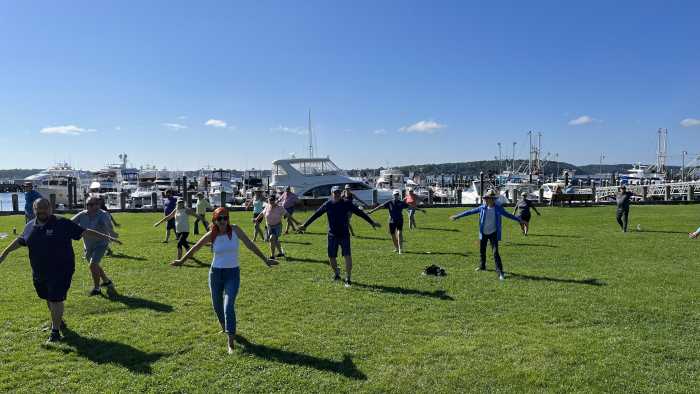‘Building Men for Others’
Schoolyards, playing fields, gymnasiums, vacant lots, street corners, makeshift clubhouses and stoops were but a few of the special places of my boyhood. These were the platforms upon which the richest of memories, sweet and sour, were built. In later years, it has been the countless hours of my work with groups of boys at North Shore Child and Family Guidance Center that have been most evocative of those special places and times. The associated images and scenarios provide me, at each memorable stop, with a visceral reminder of my earliest struggles to belong, to feel special and to be valued.
I can vividly recall the year-long struggle, at age 10, in trying to scale the grammar school roof; a rite of passage. There was the repeated disappointment in falling short and the intermittent beat of humiliating taunts by the older boys. However, what sticks with me even more is the image of dangling arms from above – my friends reaching out for my outstretched hand – a majestically simple gesture that captured the mutuality upon which our time together would be permanently rooted.
William Pollack, in his book Real Boys: Rescuing Our Sons from the Myths of Boyhood, wrote about boys helping out boys and the importance of them having peers on whom to lean. In Season of Life, journalist David Marx developed this theme from an unusual vantage point that is most often associated with what many think of as modern-day gladiator culture – football.
Marx wrote about a season that he spent with a private high school football team in Maryland led by two unconventional coaches, Joe Ehrmann and Biff Poggi. The coaches’ mission with the boys on their team was “to build men for others” by helping the boys develop empathic and nurturing relationships and helping them to commit themselves to causes greater than themselves. Their core lesson was that success was measured by what kind of friends, brothers, husbands and fathers the boys would become; versus surrendering to attributes of false masculinity comprising exclusively athletic prowess, sexual conquest and economic success.
If we hope to raise our boys to become stable, secure, successful, happy, principled, courageous and inspired men with meaningful relationships in their lives, we must be prepared to attend to their needs. Boys emulate what they observe. If what they see is emotional distance, extreme competition, guardedness and coldness between men, they are prone to copy that behavior. Boys need to be encouraged to initiate friendships, maintain them and experience and resolve the conflicts that arise in male friendship. Being a part of a group – a club or a team, for example – with sound adult leadership is an ideal arena for learning how to build relationships, negotiate differences and resolve conflicts.
Boys need permission to have an internal world of feelings, peer and adult support to help them to express a full range of emotions and models of manhood that exemplify emotional attachment. Boys also need to see that physical toughness and stoicism, as stand-alone attributes, are narrow indicators of male strength. They need to see that emotional courage is as genuine as physical courage and that empathy is a source of strength and a foundation for lasting relationships.































